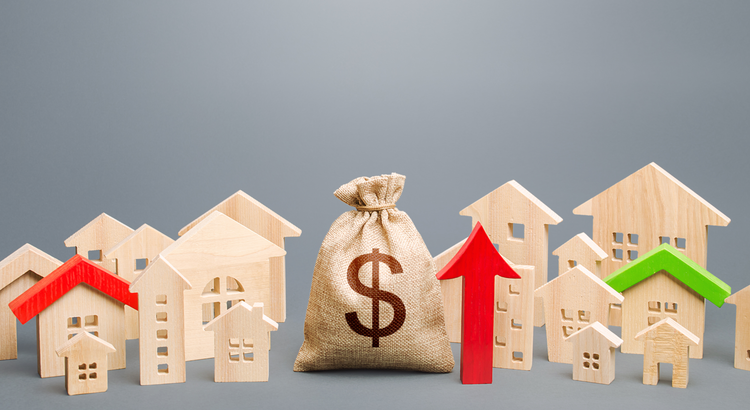Inflation affects nearly every aspect of daily life, from the cost of groceries to the price of gas. But did you know that buying a home can be a smart way to protect yourself from rising costs? While renting leaves you vulnerable to increasing housing expenses, homeownership provides stability and long-term financial benefits. Here’s how owning a home can help shield you from inflation.
1. Fixed-Rate Mortgage = Predictable Monthly Payments
One of the biggest advantages of buying a home is securing a fixed-rate mortgage. When you lock in your mortgage rate, your monthly principal and interest payments stay the same for the life of the loan—typically 15 to 30 years.
🏠 Why this matters: Rent prices tend to rise over time, but with a fixed mortgage, you don’t have to worry about unpredictable increases in your housing costs.
🌍 During inflation: As the cost of living rises, your mortgage payment remains steady, giving you financial stability in an otherwise fluctuating economy.
2. Home Values Typically Appreciate Over Time
Real estate has historically been a strong hedge against inflation because home values tend to rise along with prices in the economy. While there may be short-term market fluctuations, real estate generally appreciates in the long run.
📈 What this means for you: If you buy a home now, the value of your investment is likely to grow over time. That means when inflation pushes up the cost of living, your home’s value could increase as well, helping to build your wealth.
3. Renting Leaves You Vulnerable to Rising Costs
Unlike homeowners with a fixed mortgage, renters often experience annual rent increases—especially in high-demand areas. When inflation drives up property maintenance costs, landlords typically pass those expenses on to tenants.
🚪 The downside of renting:
- Rent hikes are unpredictable.
- You have no control over your housing costs.
- You aren’t building equity—just paying your landlord’s mortgage.
🏡 Owning your home means taking control of your housing expenses rather than being at the mercy of rental market fluctuations.
4. Home Equity Builds Long-Term Financial Security
Each mortgage payment you make increases your equity—the portion of your home you truly own. Over time, this equity grows and can be a valuable financial resource.
💰 How home equity helps during inflation:
- You can tap into it through a home equity loan or HELOC for major expenses.
- It provides a financial cushion for retirement or unexpected costs.
- It contributes to your overall net worth in a way renting never can.
As inflation erodes the purchasing power of cash, owning a home helps ensure that your money is working for you in the form of a growing asset.
5. Real Estate Can Be a Safe Long-Term Investment
During inflationary periods, many investors turn to real estate as a stable asset that tends to hold its value. Unlike stocks, which can be highly volatile, real estate typically appreciates over time, making it a reliable store of wealth.
🏡 Owning a home means you’re investing in an asset that grows, rather than paying rent with no return on investment.
Final Thoughts: Why Now May Be the Right Time to Buy
With inflation continuing to impact the economy, homeownership remains one of the best ways to protect yourself from rising costs. If you’re currently renting, now is the time to consider how buying a home could give you financial stability and long-term security.
If you’re ready to explore your options, let’s connect! I’d love to help you take the next step toward homeownership and financial peace of mind. 🚀💰🏡

Providing guidance and assisting motivated buyers, sellers, tenants, landlords, and investors in marketing and purchasing property for the right price under the best terms. Determining clients’ needs and financial ability to purchase the best home for them. Call me today and let me help you find a home that can change your life!
